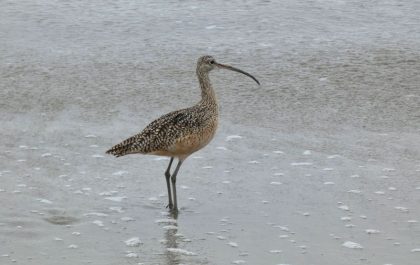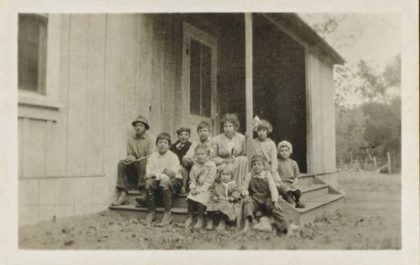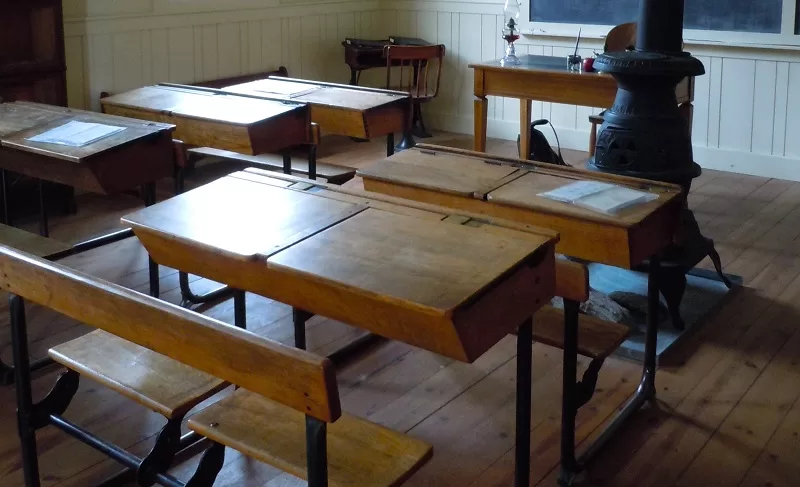I started school on Monday. I dreaded it, but it wasn’t so bad. My sister Ali and I had a lot of practice going to new schools in new places. I think most kids in military families do, but I never got used to it. The first day in any new school was always strange. We’d been at the base in Illinois almost long enough to have put down roots, to feel like it might be home. Now, here I was, walking into a new classroom, halfway across the country, and halfway through the school year.
There wasn’t actually a Malibu school. Instead, an old rattletrap bus picked the kids up every day and brought them to a school in town. It was a small class and there were a lot of empty desks. I had to sign in at the office, which meant I got to the classroom late and had to face stares and whispers. Jessie was already there by the time I arrived. She was seated next to another girl, but she smiled at me as I walked past.
I found a seat in front and tried to be invisible. It’s easier to be invisible in the back of a classroom, but I always needed to be up front to see. That could be complicated, because I’m also left handed, and most teachers don’t like that, so I either write badly with my right hand, switch back and forth when no one is looking, or sit in back where I won’t be noticed, but also won’t be able to see the blackboard.
Some teachers don’t pay much attention, but not Mr Philips. He was clearly one of those keen sorts who saw everything. He was a big man with a big voice that thundered and growled like the villain in a movie, and he had a sarcastic way of raising one eyebrow that inspired terror in his victims when he asked a question.
When the lunch bell rang he told me to stay. My heart sank.
“Given a choice, Mr Anderson, most students head for the back of the classroom, but you chose to sit in front,” he said. “Why is that?”
“So I can see better,” I mumbled. “Sir.”
“Do you wear glasses?”
“No, sir.”
“Do you need them?”
“Probably, sir.”
“Then why don’t you have them?”
I could feel the need to babble overcome me. “My aunt wouldn’t let me, sir. Not the aunt I live with now, my other aunt. She says it’s my own fault for reading too much, and for reading with the flashlight under the covers after the lights were out.”
“What did you read?” Mr Philips asked.
That wasn’t a question I was expecting. “Treasure Island,” I confessed. “And the Adventures of Sherlock Holmes, and all the Tarzan books that I could get from the local library.”
“What? Not John Carter of Mars?” he asked dryly.
“They didn’t have it at the library, or I would have,” I said, greatly daring.
“You’ll find it on the shelf at the back of the classroom,” Mr Philips growled. “You are welcome to borrow it, and anything else there, provided you return the books after you read them, and only if you tell your aunt, either or both, to get you some glasses. Better yet, I will tell her. He wrote a note in emphatic black ink and handed it to me.
I began to breathe again, but he wasn’t done with me.
“And you are also left-handed,” he stated. It wasn’t a question.
It was no good denying it. I nodded.
“Then be left handed, for God’s sake,” he thundered. “And make an effort to write clearly so your long-suffering teachers can read what you write. It’s a free country, in theory at least. You should be free to be the person you are, not the one other people want you to be. Now, go eat your lunch and leave me in peace.”
I went.
Most of the other kids were sitting in two groups at the long tables in the cafeteria—boys at one end, girls at the other. It’s funny how, no matter where you go to school, there is always that invisible divide: girls on one side, boys on the other. But today, there was a third option. I walked past the other students to where Jessie and her friend were sitting by themselves.
“James, you’re still alive!” exclaimed Jessie, with mock concern. “I was afraid the lion had eaten you.”
“He’s not so bad,” I said, embarrassed. “I think he’s actually pretty nice, but doesn’t like people to know it.”
“Me too,” she said, and turned to the girl she was sitting with. “Kitty, this is my new friend James Anderson. James, this is Kitty Nakamura. She’s an amazing artist and her parents grow strawberries in the fields across from the Malibu Colony. They have that produce stand by the road, only it’s closed right now for the winter.”
Kitty smiled shyly. “Would you like to join us for lunch?” she asked.
“Of course he’s joining us for lunch,” Jessie exclaimed. “We have plans to make!”
I joined them without hesitation.
The two girls couldn’t have looked more different. Jessie towered over her friend. She was dressed in an old plaid skirt that was too short and had a safety pin holding up the hem. Her stockings had runs in them and her shoes were muddy, as if she had walked through the creek on her way to the school bus.
Kitty was the first Asian person I had ever met. She was petite and very pretty. Her dress was faded, but it had a pattern of flowers on it and was perfectly ironed, her shoes were clean and polished and her black hair was neatly tied back with a pink ribbon. She reminded me of Alice in Wonderland. The only untidy thing about her was a smudge of ink on her fingers.
They didn’t look alike, but I soon found that the two girls had two important things in common: they were both incredibly smart and genuinely nice, but it was more than niceness. It’s hard to explain, but it was a sort of vividness, an interest in the world and the people and things in it.They cared about things.
“What about having Kitty do a cartoon for our newsletter, James? Kitty, show him your sketchbook,” Jessie urged. “Go on. Don’t be shy.”
I didn’t know anything about art, except for the illustrations in the books Aunt Maddie used to send us, but I thought Kitty’s artwork was amazing. There were sketches of the kids in class, and a very life-like portrait of Mr Philips, and there were also plants and animals and landscapes—real ones and imaginary ones. They were all drawn in plain black ink but they were detailed and there was so much life in them it felt like looking into another world.
“These are amazing, Kitty!” I exclaimed. “They look like illustrations from a real book. You’re really good.”
“I’m still learning,” she said. “But I draw as much as I can. I’d like to be an illustrator who makes pictures for books when I grow up.”
We were deep in conversation about the Coastwatchers, and the newsletter, and our plans for the future when the bell rang.
We walked back to class together. It had been such a good conversation that I hadn’t noticed the way that the other kids avoided us, how they avoided Kitty. The realization was gradual, like cold water seeping into your shoes.
I had a sudden memory of Aunt Charlotte confiscating a toy horse that I received as a gift, because it was made in Japan. I loved that horse and didn’t want to give it up.
“The horse can’t help where it was made, and it’s an American horse now,” I had argued, appealing my aunt’s decision to Father. He sided with my aunt and took the horse from me, whether out of conviction or to restore peace and quiet, I never knew.
I realized right then that grownups could be wrong, that my father, the Olympian whose word was law, could be wrong.
Kitty was my friend, as much a friend as if I had known her all of my life. I didn’t care what anyone else said or thought. I walked back to my seat a different person than the one who left it. A lot can happen in a short time, even during a middle school lunch break.





